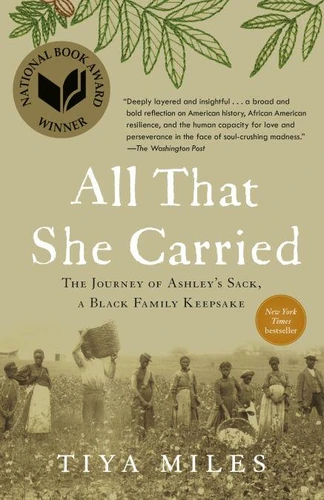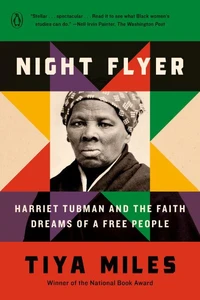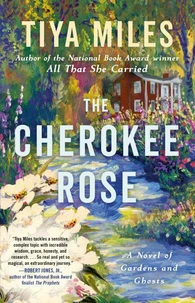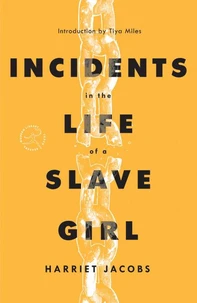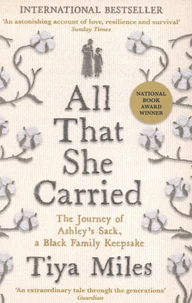All That She Carried: The Journey of Ashley's Sack, a Black Family Keepsake
Par :Formats :
Disponible dans votre compte client Decitre ou Furet du Nord dès validation de votre commande. Le format ePub protégé est :
- Compatible avec une lecture sur My Vivlio (smartphone, tablette, ordinateur)
- Compatible avec une lecture sur liseuses Vivlio
- Pour les liseuses autres que Vivlio, vous devez utiliser le logiciel Adobe Digital Edition. Non compatible avec la lecture sur les liseuses Kindle, Remarkable et Sony
- Non compatible avec un achat hors France métropolitaine
 , qui est-ce ?
, qui est-ce ?Notre partenaire de plateforme de lecture numérique où vous retrouverez l'ensemble de vos ebooks gratuitement
Pour en savoir plus sur nos ebooks, consultez notre aide en ligne ici
- Nombre de pages416
- FormatePub
- ISBN978-1-9848-5500-8
- EAN9781984855008
- Date de parution08/06/2021
- Protection num.Adobe DRM
- Taille43 Mo
- Infos supplémentairesepub
- ÉditeurRandom House
Résumé
NATIONAL BOOK AWARD WINNER . NEW YORK TIMES BESTSELLER . A renowned historian traces the life of a single object handed down through three generations of Black women to craft a "deeply layered and insightful" (The Washington Post) testament to people who are left out of the archives. WINNER: Frederick Douglass Book Prize, Harriet Tubman Prize, PEN/John Kenneth Galbraith Award, Anisfield-Wolf Book Award, Ralph Waldo Emerson Prize, Lawrence W.
Levine Award, Darlene Clark Hine Award, Cundill History Prize, Joan Kelly Memorial Prize, Massachusetts Book AwardONE OF THE TEN BEST BOOKS OF THE YEAR: The Washington Post, Slate, Vulture, Publishers Weekly"A history told with brilliance and tenderness and fearlessness."-Jill Lepore, author of These Truths: A History of the United States In 1850s South Carolina, an enslaved woman named Rose faced a crisis: the imminent sale of her daughter Ashley.
Thinking quickly, she packed a cotton bag for her with a few items, and, soon after, the nine-year-old girl was separated from her mother and sold. Decades later, Ashley's granddaughter Ruth embroidered this family history on the sack in spare, haunting language. Historian Tiya Miles carefully traces these women's faint presence in archival records, and, where archives fall short, she turns to objects, art, and the environment to write a singular history of the experience of slavery, and the uncertain freedom afterward, in the United States.
All That She Carried is a poignant story of resilience and love passed down against steep odds. It honors the creativity and resourcefulness of people who preserved family ties when official systems refused to do so, and it serves as a visionary illustration of how to reconstruct and recount their stories today. FINALIST: MAAH Stone Book Award, Kirkus Prize, Mark Lynton History Prize, Chatauqua Prize, Women's PrizeONE OF THE BEST BOOKS OF THE YEAR: The New York Times, NPR, Time, The Boston Globe, The Atlantic, The Atlanta Journal-Constitution, Smithsonian Magazine, St.
Louis Post-Dispatch, Ms. magazine, Book Riot, Library Journal, Kirkus Reviews, Booklist
Levine Award, Darlene Clark Hine Award, Cundill History Prize, Joan Kelly Memorial Prize, Massachusetts Book AwardONE OF THE TEN BEST BOOKS OF THE YEAR: The Washington Post, Slate, Vulture, Publishers Weekly"A history told with brilliance and tenderness and fearlessness."-Jill Lepore, author of These Truths: A History of the United States In 1850s South Carolina, an enslaved woman named Rose faced a crisis: the imminent sale of her daughter Ashley.
Thinking quickly, she packed a cotton bag for her with a few items, and, soon after, the nine-year-old girl was separated from her mother and sold. Decades later, Ashley's granddaughter Ruth embroidered this family history on the sack in spare, haunting language. Historian Tiya Miles carefully traces these women's faint presence in archival records, and, where archives fall short, she turns to objects, art, and the environment to write a singular history of the experience of slavery, and the uncertain freedom afterward, in the United States.
All That She Carried is a poignant story of resilience and love passed down against steep odds. It honors the creativity and resourcefulness of people who preserved family ties when official systems refused to do so, and it serves as a visionary illustration of how to reconstruct and recount their stories today. FINALIST: MAAH Stone Book Award, Kirkus Prize, Mark Lynton History Prize, Chatauqua Prize, Women's PrizeONE OF THE BEST BOOKS OF THE YEAR: The New York Times, NPR, Time, The Boston Globe, The Atlantic, The Atlanta Journal-Constitution, Smithsonian Magazine, St.
Louis Post-Dispatch, Ms. magazine, Book Riot, Library Journal, Kirkus Reviews, Booklist
NATIONAL BOOK AWARD WINNER . NEW YORK TIMES BESTSELLER . A renowned historian traces the life of a single object handed down through three generations of Black women to craft a "deeply layered and insightful" (The Washington Post) testament to people who are left out of the archives. WINNER: Frederick Douglass Book Prize, Harriet Tubman Prize, PEN/John Kenneth Galbraith Award, Anisfield-Wolf Book Award, Ralph Waldo Emerson Prize, Lawrence W.
Levine Award, Darlene Clark Hine Award, Cundill History Prize, Joan Kelly Memorial Prize, Massachusetts Book AwardONE OF THE TEN BEST BOOKS OF THE YEAR: The Washington Post, Slate, Vulture, Publishers Weekly"A history told with brilliance and tenderness and fearlessness."-Jill Lepore, author of These Truths: A History of the United States In 1850s South Carolina, an enslaved woman named Rose faced a crisis: the imminent sale of her daughter Ashley.
Thinking quickly, she packed a cotton bag for her with a few items, and, soon after, the nine-year-old girl was separated from her mother and sold. Decades later, Ashley's granddaughter Ruth embroidered this family history on the sack in spare, haunting language. Historian Tiya Miles carefully traces these women's faint presence in archival records, and, where archives fall short, she turns to objects, art, and the environment to write a singular history of the experience of slavery, and the uncertain freedom afterward, in the United States.
All That She Carried is a poignant story of resilience and love passed down against steep odds. It honors the creativity and resourcefulness of people who preserved family ties when official systems refused to do so, and it serves as a visionary illustration of how to reconstruct and recount their stories today. FINALIST: MAAH Stone Book Award, Kirkus Prize, Mark Lynton History Prize, Chatauqua Prize, Women's PrizeONE OF THE BEST BOOKS OF THE YEAR: The New York Times, NPR, Time, The Boston Globe, The Atlantic, The Atlanta Journal-Constitution, Smithsonian Magazine, St.
Louis Post-Dispatch, Ms. magazine, Book Riot, Library Journal, Kirkus Reviews, Booklist
Levine Award, Darlene Clark Hine Award, Cundill History Prize, Joan Kelly Memorial Prize, Massachusetts Book AwardONE OF THE TEN BEST BOOKS OF THE YEAR: The Washington Post, Slate, Vulture, Publishers Weekly"A history told with brilliance and tenderness and fearlessness."-Jill Lepore, author of These Truths: A History of the United States In 1850s South Carolina, an enslaved woman named Rose faced a crisis: the imminent sale of her daughter Ashley.
Thinking quickly, she packed a cotton bag for her with a few items, and, soon after, the nine-year-old girl was separated from her mother and sold. Decades later, Ashley's granddaughter Ruth embroidered this family history on the sack in spare, haunting language. Historian Tiya Miles carefully traces these women's faint presence in archival records, and, where archives fall short, she turns to objects, art, and the environment to write a singular history of the experience of slavery, and the uncertain freedom afterward, in the United States.
All That She Carried is a poignant story of resilience and love passed down against steep odds. It honors the creativity and resourcefulness of people who preserved family ties when official systems refused to do so, and it serves as a visionary illustration of how to reconstruct and recount their stories today. FINALIST: MAAH Stone Book Award, Kirkus Prize, Mark Lynton History Prize, Chatauqua Prize, Women's PrizeONE OF THE BEST BOOKS OF THE YEAR: The New York Times, NPR, Time, The Boston Globe, The Atlantic, The Atlanta Journal-Constitution, Smithsonian Magazine, St.
Louis Post-Dispatch, Ms. magazine, Book Riot, Library Journal, Kirkus Reviews, Booklist

